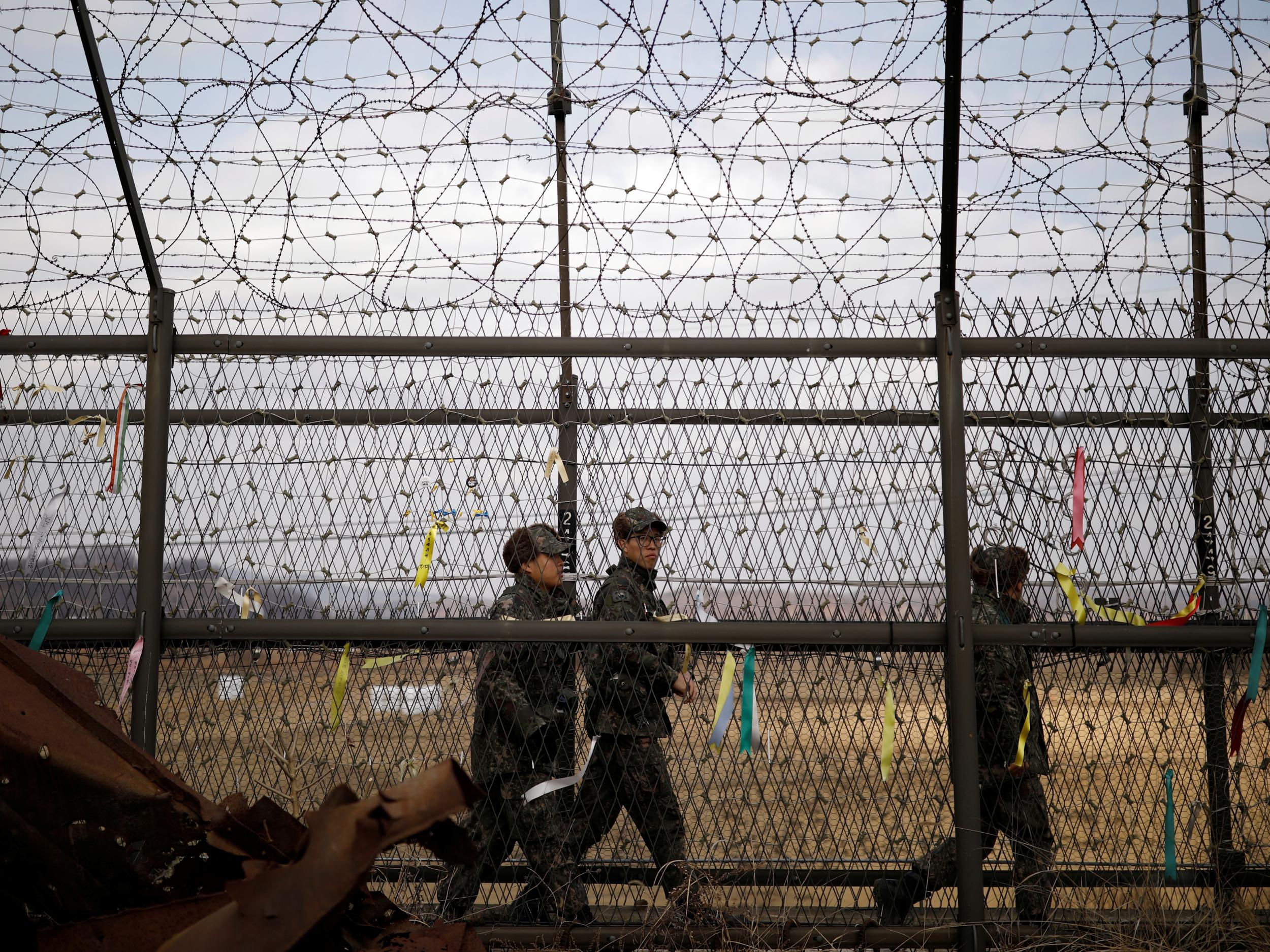South Korean military court hands army captain suspended prison sentence for having gay sex with fellow soldier
Unnamed officer being treated for shock after verdict branded 'ridiculous' by defence lawyer

Your support helps us to tell the story
From reproductive rights to climate change to Big Tech, The Independent is on the ground when the story is developing. Whether it's investigating the financials of Elon Musk's pro-Trump PAC or producing our latest documentary, 'The A Word', which shines a light on the American women fighting for reproductive rights, we know how important it is to parse out the facts from the messaging.
At such a critical moment in US history, we need reporters on the ground. Your donation allows us to keep sending journalists to speak to both sides of the story.
The Independent is trusted by Americans across the entire political spectrum. And unlike many other quality news outlets, we choose not to lock Americans out of our reporting and analysis with paywalls. We believe quality journalism should be available to everyone, paid for by those who can afford it.
Your support makes all the difference.A South Korean military court has sentenced an army captain to a suspended prison term for having sex with a fellow male soldier in a ruling human rights groups criticised as regressive and intimidating.
A lawyer for the captain said her client was being punished for having consensual sex with his partner in a private space. She said the captain was briefly treated at a hospital for shock following his conviction.
“It's a ridiculous ruling,” said lawyer Kim In-sook. She said the military penal code, which makes homosexual activity punishable by up to two years in prison, was unconstitutional because it tramples on basic human rights and dignity.
South Korea's military, which doesn't reveal how often it pursues cases against soldiers suspected of being gay, didn't immediately make a statement.
Kim said it's unclear whether her client would appeal his six month prison sentence that was suspended by a year because he felt tormented by the legal process. He will be dishonourably discharged if the ruling stays.
The captain was arrested last month amid allegations by a watchdog that South Korea's military was hunting down and prosecuting gay servicemen. South Korea's army has denied such claims, saying it was conducting a criminal investigation of soldiers who posted a video on the internet of two male soldiers having sex earlier this year.
Lim Tae-hoon, who heads the Military Human Rights Center for Korea, which complained about the crackdown, said in an earlier interview with The Associated Press that neither the captain nor his partner had anything to do with the soldiers involved with the video leak.
According to Lim, military investigators used the information gained from their inquiry into the video case to track down other gay soldiers. Investigators threatened soldiers to out their gay peers, confiscated cellphones to check communication records, and even used dating apps to dupe soldiers into revealing their sexual identity, Lim said.
Lim's group released a statement denouncing Wednesday's ruling, saying that it “turned the clock of history backward.”
“Sexual minorities who are always living in danger of being outed by others now must live in fear that they could be tracked down at any time and interrogated over their private lives,” the group said.
Roseann Rife, East Asia research director at Amnesty International, called for the “unjust conviction” to be immediately overturned.
In conservative South Korea, gays, lesbians, bisexual and transgender people are harshly stigmatised and struggle to be politically visible, while a powerful Christian lobby immobilises politicians seeking to pass anti-discrimination laws. That stigma is amplified in the military, where most able-bodied South Korean men are required to serve about two years as the country maintains a large force in the face of potential conflict with North Korea.
Gay men are not exempt from conscription but are banned from engaging in homosexual activity while serving, leading to an environment in which they serve without revealing their sexual identity for fear of discrimination and reprisals.
Copyright Associated Press
Join our commenting forum
Join thought-provoking conversations, follow other Independent readers and see their replies
Comments